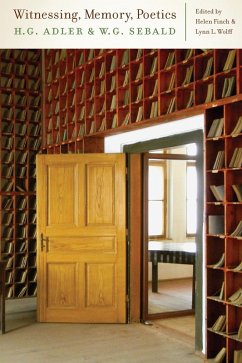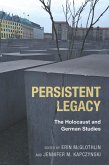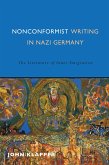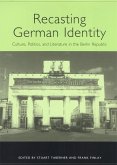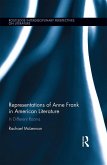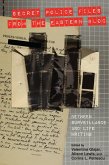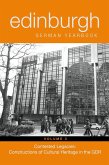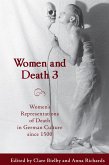Investigates the connections between German writers H.G. Adler and W.G. Sebald and reveals a new hybrid paradigm of writing about the Holocaust in light of the wider literary-political implications of Holocaust representation since 1945.
Since 1945, authors and scholars have intensely debated what form literary fiction about the Holocaust should take. The works of H. G. Adler (1910-1988) and W. G. Sebald (1944-2001), two modernist scholar-poets who settled in England but never met, present new ways of reconceptualizing the nature of witnessing, literary testimony, and the possibility of a "poetics" after Auschwitz. Adler, a Czech Jew who survived Theresienstadt and Auschwitz, was a prolific writer of prose and poetry, but his work remained little known until Sebald, possibly the most celebrated German writer of recent years, cited it in his 2001 work, Austerlitz. Since then, a rediscovery of Adler has been under way. This volume of essays by international experts on Adler and Sebald investigates the connections between the two writers to reveal a new hybrid paradigm of writing about the Holocaust that advances our understanding of the relationship between literature, historiography, and autobiography. In doing so, the volume also reflects on the wider literary-political implications of Holocaust representation, demonstrating the shifting norms in German-language "Holocaust literature."
Contributors: Jeremy Adler, Jo Catling, Peter Filkins, Helen Finch, Frank Finlay, Kirstin Gwyer, Katrin Kohl, Michael Krüger, Martin Modlinger, Dora Osborne, Ruth Vogel-Klein, Lynn L. Wolff.
Helen Finch is Associate Professor in German at the University of Leeds. Lynn L. Wolff is assistant Professor at Michigan State University.
Since 1945, authors and scholars have intensely debated what form literary fiction about the Holocaust should take. The works of H. G. Adler (1910-1988) and W. G. Sebald (1944-2001), two modernist scholar-poets who settled in England but never met, present new ways of reconceptualizing the nature of witnessing, literary testimony, and the possibility of a "poetics" after Auschwitz. Adler, a Czech Jew who survived Theresienstadt and Auschwitz, was a prolific writer of prose and poetry, but his work remained little known until Sebald, possibly the most celebrated German writer of recent years, cited it in his 2001 work, Austerlitz. Since then, a rediscovery of Adler has been under way. This volume of essays by international experts on Adler and Sebald investigates the connections between the two writers to reveal a new hybrid paradigm of writing about the Holocaust that advances our understanding of the relationship between literature, historiography, and autobiography. In doing so, the volume also reflects on the wider literary-political implications of Holocaust representation, demonstrating the shifting norms in German-language "Holocaust literature."
Contributors: Jeremy Adler, Jo Catling, Peter Filkins, Helen Finch, Frank Finlay, Kirstin Gwyer, Katrin Kohl, Michael Krüger, Martin Modlinger, Dora Osborne, Ruth Vogel-Klein, Lynn L. Wolff.
Helen Finch is Associate Professor in German at the University of Leeds. Lynn L. Wolff is assistant Professor at Michigan State University.
Dieser Download kann aus rechtlichen Gründen nur mit Rechnungsadresse in A, D ausgeliefert werden.

